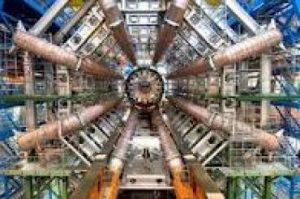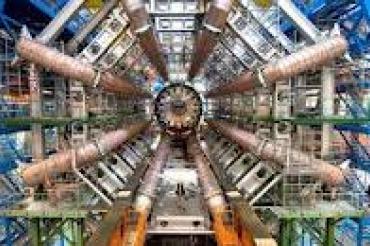The person who was explaining “Why I am no longer Adventist” listed this as one of his/her reasons:
“I cannot be a recent creationist and remain sane: the evidence is just far too overwhelming in the direction of evolution and long time spans.”
I hear this a lot.Yes, the evidence is overwhelming if you assume that conditions in the natural order have been constant. In the past, I have suggested several possibilities which might explain the apparent old age to people who hold the view that short term creation is impossible.
I want to stress two things here: First, I do not hold to the 6,000 year timetable for creation. There is no evidence whatsoever that the biblical authos had the slightest interest in the age of the planet. They were very interested in the lineage of the Israelites, but often there sense of evidence and reasons for inclusion or exclusion of certain individuals are very different than ours. So, as far as the age of the Earth– the Bible simply doesn’t address that issue.
Second, “short term” creation is anything less than millions of years.
Anyway, when I have proposed solutions to the apparent age issue to scientists, I’ve never been told, “That’s impossible.” No, the typical response is “That’s radical.” I find that amusing. Many of these same individuals claim to believe the Bible, but then surround that belief with many modifiers–time, place, culture, etc.
But here’s something simple and straight forward. However you view the Bible, it is clear that when Adam and Eve sinned, something radical happened to the natural order.
Of course, you’re perfectly free to reject that text. But it is integral to the Bible narrative. Without that radical change brought in by sin, the rest of the narrative serves little purpose. The point is this: If you accept the Bible at all, then saying “that’s radical” to a proposed solution is frivolous. Of course it’s radical. What happened was radical.
So, the question about believing in short term creation while being a scientist isn’t a question of sanity, it’s a question of imagination, and of willingness to examine, and challenge, assumptions. Assumptions like “no radical changes have taken place in the natural order.”
The other problem is the failure to recognize that science itself has become a religion. We see this when scientific debate–for example over human-caused global warming– gets really intense. Those who question the scientific consensus are accused of heresy, not sloppy science.
 And another interesting point. Science itself is approaching a serious crisis. Not in the debate over man-caused global warming, although that has not been the scientists finest hour, but because of a recent experiment at CERN, the European Laboratory for Particle Physics. CERN recently sent accelerated some neutrinos faster than the speed of light. On more than one occasion. If it can be verified, he science faces the falsification of one of its fundamental tenets–that nothing can go faster than the speed of light.
And another interesting point. Science itself is approaching a serious crisis. Not in the debate over man-caused global warming, although that has not been the scientists finest hour, but because of a recent experiment at CERN, the European Laboratory for Particle Physics. CERN recently sent accelerated some neutrinos faster than the speed of light. On more than one occasion. If it can be verified, he science faces the falsification of one of its fundamental tenets–that nothing can go faster than the speed of light.
That would not be insane, but it would certainly be radical.










